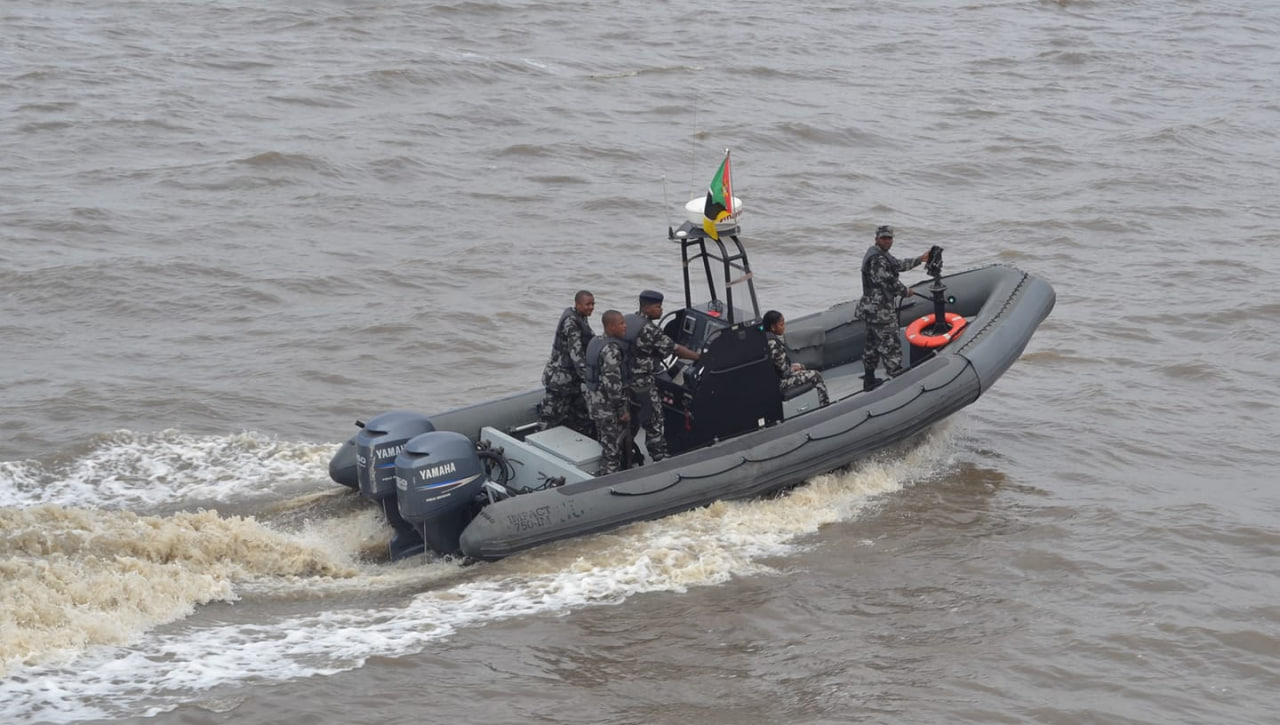The Mozambican navy has been accused of indiscriminately killing or capturing anyone found fishing off the coast of northern Cabo Delgado province in recent weeks, multiple sources have told Zitamar News.
The killings, apparently carried out by Mozambican marines who may have been trained by the European Union’s military training mission in Mozambique, are conducted from boats marked with the Mozambican flag and bearing the word ‘Moçambique’. While some victims are known to have been killed, those captured have not yet been seen again.
Sources in Macomia district have told Zitamar News that the marines are killing or capturing anyone found on a boat off the coast of the districts of Macomia, Ibo, Mocímboa da Praia and Palma, on suspicion of their belonging to the Islamic State-backed insurgency in Cabo Delgado. As a result, fishing activity in the region has completely stopped.
President Filipe Nyusi recently confirmed offshore operations in the area, saying in a speech on 3 February, Mozambican Heroes’ Day, that “government forces with the support of Rwanda and the Southern African Development Community are conducting immediate operations which include the occupation and consolidation of strategic positions in Mucojo, in the district of Macomia, and controlling the coastline.”
The stories of human rights abuses that Zitamar has heard come at the same time as a report on website Carta de Moçambique last week of civilians being arrested and beaten by the Mozambican military on land, in and around Mucojo.
A spokesperson for the Mozambican military, Colonel Benjamin Chabualo, described the allegations as “disinformation”, saying that it was impossible that the Mozambican military was persecuting fishermen, since they are there to protect the civilian population.
The European Union’s External Action Service, which oversees the EU training mission in Mozambique, did not provide comment for this article in time for publication.
The “Mozambique boat”
The current spree of attacks alleged by the Mozambican navy began in the last week of December, when two fishing boats were held up by a navy vessel close to the island of Magundula, off the Mucojo area of Macomia district. A few days earlier, insurgents had occupied a Mozambican military position in Mucojo.
Around the same time, reports emerged of another boat with around 30 people on board, including fishermen, who were all killed by another “Mozambique boat”, as the locals call it, close to Muissune island, in Mocímboa da Praia district.
Since then, episodes of killings along the coast have multiplied. In the week of 25 January, marines allegedly fired on a fishing boat near Quilufa island, close to the village of Pangane, killing 12 of 13 people on board.
“They didn’t ask any questions when they killed those 12,” one resident of Mucojo village told Zitamar. “They were pulling in the fishing net, six on either side and the thirteenth was at the back, checking the net. He’s the one who escaped and told us what happened. One of the victims was my brother.”
Another resident of the area, Macassar Juma, told Zitamar how his brother in law had come to Macomia from Ancuabe in order to buy fish, but went home empty-handed because no one was fishing off the Macomia coast. “The fishermen are fleeing due to the Mozambique boat, there’s almost no fishing there.” Juma said.
The activities of the marines has also meant that transport has stopped between Mucojo and surrounding villages, and the nearby island of Matemo.
Bound, blindfolded, and kicked overboard
The most recent attack on fishing boats came on 30 January off the coast of Pangane, at Makoloe island, around 5pm that day. Two fishing boats were stopped by Mozambican marines, with a total of 32 people on board, according to a family member of one of the fishermen, who related the story told by one man who survived being thrown into the sea, bound and blindfolded.
“The people were taken by the Mozambique boat on the night of 30 January,” the relative of one of the victims told us. Some of them were locals, and others had moved from Nampula province, attracted by the fishing in the area. The marines stripped the fishermen naked, blindfolded them, and tied their hands behind their backs, according to the account of the survivor. They then attached the two boats to their boat to tow them away.
The marines, he said, started questioning the fishermen about if insurgents had come to Pangane, and if the fishermen had sold them food. They emptied the fishermen’s wallets, while the fishermen lay bound on the floor of the boat. One of them, called Nuh, asked to be allowed to urinate. While doing so, a marine kicked him off the boat and into the water. Nuh managed to untie his hands while in the water and swim to Makaloe island. He retold his story when he arrived back in Pangane the following day, 31 January.
The situation is also hitting commerce in the area. “I made a big loss,” said Bali Faquih, an informal trader of fish in Macomia district. “First we fled from an island in [the district of] Mocímboa, to Mucojo; from there it was hard to find a car. I lost MZN20,000 ($313) because all the fish rotted.
“Nowadays everyone is in Mucojo village, and no one is fishing — the people who went, we clearly saw them being killed on their boats.”
Faquih said that the marines at one point tried to go to the villages of Messano and Pangane, but they left when they realised there were insurgents close by. Since then they had been attacking any boats found off the coast of Pangane, he added.
This article was produced by Zitamar News under the Cabo Ligado project, in collaboration with Mediafax and ACLED. The contents of the article are the sole responsibility of Zitamar News.








